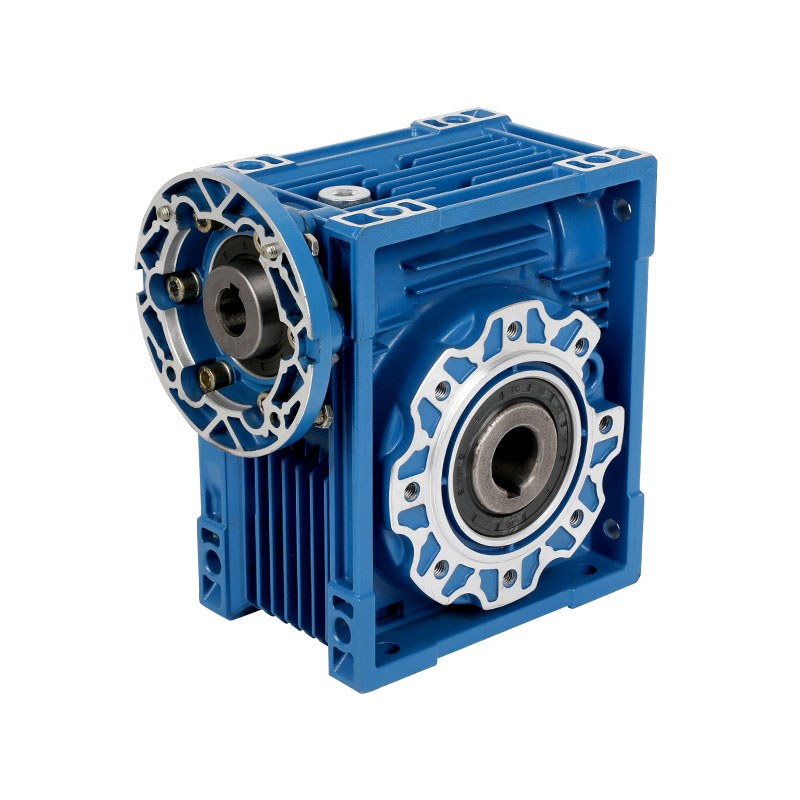RV worm gear reducers are widely used in machinery because of their compact design, strong torque transmission, and reliable performance. They are common in automation systems, conveyors, packaging machines, and many types of industrial equipment. However, one question often arises from operators and maintenance teams: Is it normal for the RV worm gear reducer to make a loud noise?
The short answer is some noise is normal, but loud or unusual noise usually indicates a problem. Let’s explore why noise occurs, what levels are considered acceptable, and when you should take action.
Why Does a Worm Gear Reducer Make Noise?
Like all gear systems, worm gear reducers produce noise during operation due to the meshing of gears. As the worm screw drives the worm wheel, surfaces slide against each other, creating friction and vibration. This is different from spur or helical gears, which mostly roll instead of slide. Because of this design, worm gears tend to generate slightly more noise.
Normal noise may sound like a low, steady hum or whirring, especially at higher speeds. This is usually harmless and expected.
Common Causes of Excessive Noise
If the noise becomes loud, irregular, or metallic, it often signals an issue. Some common causes include:
- Improper Lubrication – Worm gears require high-quality lubrication to reduce friction. Low oil levels, dirty oil, or the wrong lubricant can increase noise significantly.
- Gear Wear or Damage – Over time, the worm and gear teeth can wear down. Excessive wear or pitting leads to uneven contact and louder operation.
- Misalignment – If the reducer is not correctly aligned with the motor or driven equipment, additional stress occurs on the gears, creating vibration and noise.
- Loose Fasteners – Vibrations from surrounding machinery can loosen bolts, causing abnormal sounds.
- Overloading – Operating the reducer under loads higher than its rated capacity can strain the gears, producing knocking or grinding sounds.
- Poor Installation Base – If the reducer is mounted on an unstable or thin structure, vibrations may be amplified, making the noise seem louder than normal.
What Level of Noise Is Normal?
Every reducer has a design noise range, usually influenced by speed, size, and load. A typical RV worm gear reducer in good condition produces a steady operating sound that does not interfere with normal conversation. If the sound is loud enough to be disruptive, sharp, or irregular, it should not be considered normal.
It is also important to compare noise levels over time. If a reducer that once ran quietly now produces noticeably more noise, this is a warning sign.
How to Reduce Noise
If you notice your RV worm gear reducer making loud noises, several steps can help:
- Check Lubrication: Ensure the reducer has the correct type and amount of oil. Replace old or contaminated lubricant.
- Inspect for Wear: Open the housing and examine the worm and wheel teeth. Replace worn gears promptly.
- Check Alignment: Make sure the reducer is properly aligned with connected equipment. Realign if necessary.
- Tighten Fasteners: Inspect all bolts and connections for looseness.
- Reduce Load: Confirm the reducer is not overloaded and adjust the system if required.
- Improve Mounting: Install the reducer on a stable base with vibration-damping materials if possible.
Preventive Maintenance Matters
Regular maintenance is the best way to prevent loud noise issues. This includes checking oil levels, scheduling lubricant changes, inspecting gear condition, and monitoring operating temperature. Keeping a maintenance log helps detect changes early, allowing you to take corrective action before problems grow worse.
Safety Considerations
Ignoring loud noise is risky. Excessive noise often signals friction, wear, or misalignment, all of which can lead to overheating and failure. A failing reducer may suddenly stop, potentially damaging other equipment or even causing safety hazards in industrial environments.
Final Thoughts
So, is it normal for the RV worm gear reducer to make a loud noise? No, loud or irregular noise is not normal. While some humming or low-level noise is expected due to the sliding action of worm gears, excessive noise usually indicates lubrication problems, wear, misalignment, or overloading.
Addressing these issues quickly not only restores quieter operation but also extends the life of the reducer and prevents costly downtime. For operators and maintenance teams, listening to your equipment is one of the simplest and most effective ways to ensure reliable performance.


 English
English русский
русский bahasa Indonesia
bahasa Indonesia
